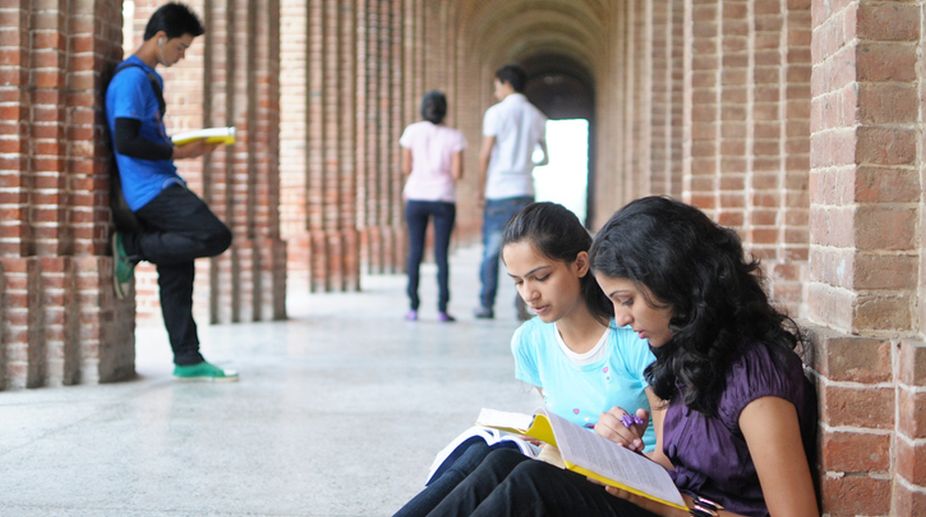Education, as an idea and practice, tends to be conventional and enduring even while efforts are made continuously towards making it contemporary and futuristic. This is, however, rooted in the primal conflict between the ideal and the practical, the needed and the available, and the desirable and the achievable.
The last century has seen, by far, the most notable advances in science, technology and engineering that helped most educational institutions ride the crest of this fascination with science education.
Advertisement
However organisations — private and public, corporate and government-employing these graduates have often found them uniquely unidimensional. The so-called sound educational grounding in science, engineering and technology did leave educated grappling with solutions to situations that involved aspects of the deepest civil and humane goals of education. These include interpersonal relationships, humaneness, psychological and leadership nuances, the ideal coordination of the intellect with the emotions, and most importantly, commitment and support to one another.
The brilliant advancement in the first half of last century manifested itself in unparalleled scientific savagery in the form of two world wars and the holocaust, dropping of atom bombs, innumerable conflicts, massacres, civil strife, ethnic cleansing, and ruthless colonisation of the third world. The science that devastated Hiroshima and Nagasaki, the technology that made the Pearl Harbor attack possible and the engineering that built Auschwitz and other concentration camps are the most somber, depressing and grim reminders of education have failed humankind. Few episodes in history elicit so much outrage from contemporary and subsequent historians and researchers.
The world soon realised that there was something horribly wrong with the way society was educating itself. All this forced the thinkers, scholars and educationalists to rethink about the direction, content and character of education, particularly at higher level. The need was thus felt to seriously look at liberal education, which was interdisciplinary in approach, accepted plurality of insights and respected diversity of views. It encouraged debate, critical thinking and problem solving, and helped pursue non-violence and equality as the cardinal principles of peaceful co-existence.
Barring a few islands of excellence, the Indian education system has by and large not kept up with the times. Higher professional education embedded in conventional streams, but bereft of liberal education, somehow seems to have consistently impaired inculcation of critical faculties as creativity and innovation. An engineering degree may propel to top ranks in various competitive examinations but it is only a liberal education degree that prepares for a life of leadership. Adam Falk, the President of the Williams College, Massachusetts, world’s number one ranked liberal arts college, while addressing the graduating class of 2014, describes a liberal arts education as “giving us an insight into what it means to be human; preparing us for leading a meaningful life, not just the next job, teaching us what it means to have a moral compass and how to think critically about life’s
choices.”
It is time in India, particularly thinkers, scholars, policy makers and educationists, to rethink about the direction, content and character of education. There has to be something lacking that fails to sensitise the human mind to the existential values of human co-existence and empathy. The compartmentalisation and pursuance of knowledge into narrow domains have constricted the scope of critical thinking, creativity, innovation and leadership– all of which require the capabilities and faculties. As of now there are very few liberal arts institutions in our country that meet international standards, hence more an exception than the norm.
One of the main aims of education is preparing young minds for leadership which, amongst other qualities and capabilities, most essentially needs the ability to successfully negotiate human relationships. The broad and diverse canvas of liberal arts education covering humanities, social sciences, creative arts and sciences provides the set and temper to face life’s many battles– most importantly those demanding leadership.
The essentially interdisciplinary character of a liberal education provides one the necessary need to the multifaceted character of human nature. Reasonable exposure to subjects across major streams considerably increases the awareness of seemingly disparate domains of knowledge that would ordinarily remain totally alien to students of traditional single-stream system. The soft degrees of world’s most successful ones prove, beyond doubt, that students having had access and exposure to education in liberal arts have had more successful careers, be it in arts, sciences, industry, politics or any other area of human endeavour that demands leadership.
The writer is Vice Chancellor, Flame University









